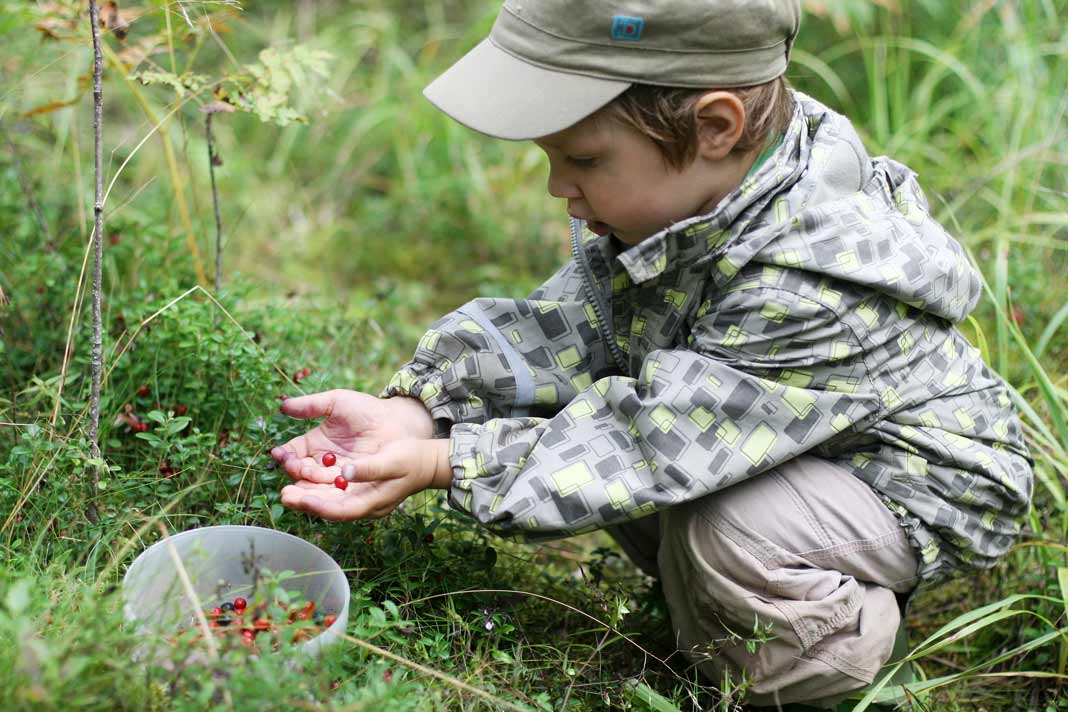Non-wood forest products in Europe: seeing the forest around the trees
A major new publication paints a vivid and detailed picture on the value, role and potential of non-wood forest products (NWFP) in Europe. With important new insights, the publication presents findings on European markets and sketches out the needs for a new policy framework addressing both EU and national specifications, as well as offering multiple examples of innovation in the sector.
There is increasing evidence that NWFP constitute an important and underrated segment of forest goods and services. Yet the forest-based sector has mainly developed around wood-based products, due to the significant relative economic importance of wood and the well-developed and competitive value chains based on wood as a raw material (e.g. wood products, pulp and paper, bioenergy).
However, according to the Millennium Ecosystem Assessment, more than 150 NWFPs are of importance within international trade, while the 2015 report on the State of Europe’s Forests estimates that the total value of NWFP in the FOREST EUROPE region reached €2.28 billion, of which 73% was generated by plant products. Furthermore, there are significant differences in the access, utilisation and economic importance of NWFP in Europe.
 Non-wood forest products in Europe: seeing the forest around the trees discusses the reasons for these differences, based on the results of the EU FP7 project Multipurpose trees and non-wood forest products: a challenge and opportunity (StarTree).
Non-wood forest products in Europe: seeing the forest around the trees discusses the reasons for these differences, based on the results of the EU FP7 project Multipurpose trees and non-wood forest products: a challenge and opportunity (StarTree).
Following an introduction to NWFP, chapter two looks at the history of NWFP, their relevance to modern society and drivers for their development. Chapter three explores NWFP consumption in Europe, showing widespread use of many products, as well as an analysis of markets and supply chains and a section dedicated to branding, standards and certification. Chapter four concerns the demands for, and barriers to, a policy framework for NWFP in Europe, looking at national and sub-national policies, landowner perspectives and access to forests and harvesting rights. Chapter five focuses on innovation, from trends and needs to future diversification strategies. Chapter six explores the implications for NWFP in a bioeconomy, considering opportunities for cross-sectoral links and novel management concepts to boost product diversity. Finally, chapter seven discusses the policy implications for NWFP in Europe, drawing on the findings and discussion of the previous chapters to highlight major policy needs.
The publication, the 10th volume of the EFI series What Science Can Tell Us, calls for more effort to fully comprehend, monitor and document NWFP resources and their current and potential contribution to rural development and a bioeconomy of natural resources. We must understand the complete spectrum of resources available, to identify potentials and niches of these resources, to clarify use rights, and also trade-offs and synergies between forest and other land-use forms. The Europe 2020 Strategy calls for ‘smart, sustainable and inclusive economic growth’: NWFP can contribute substantially to this objective.
Full reference: Wolfslehner, B., Prokofieva, I. and Mavsar, R. (editors). 2019. Non-wood forest products in Europe: Seeing the forest around the trees. What Science Can Tell Us 10. European Forest Institute.
This publication presents the results of the EU FP7 project Multipurpose trees and non-wood forest products: a challenge and opportunity (StarTree). This project received funding from the European Union’s Seventh Programme for research, technological development and demonstration under grant agreement No. 311919.

Chi siamo
Il progetto INCREDIBLE ha lo scopo di mostrare come i prodotti forestali non legnosi (NWFP) possono svolgere un ruolo importante nel sostenere la gestione forestale sostenibile e lo sviluppo rurale, creando reti per condividere e scambiare conoscenze e competenze. Il progetto INCREDIBLE promuove la collaborazione e l'innovazione intersettoriali per evidenziare il valore e il potenziale dei prodotti forestali non legnosi nel bacino del Mediterraneo.
Funding
 Il progetto INCREDIBLE ("INNOVATION Networks of Cork, Resins and Edibles in the Mediterranean basin") riceve finanziamenti dal programma della Commissione Europea Horizon 2020 secondo il grant agreement Nº 774632.
Il progetto INCREDIBLE ("INNOVATION Networks of Cork, Resins and Edibles in the Mediterranean basin") riceve finanziamenti dal programma della Commissione Europea Horizon 2020 secondo il grant agreement Nº 774632.
Contact
Email: info@incredibleforest.net or use the contact form.
We welcome your feedback!















Commenti (4)
Add Comment